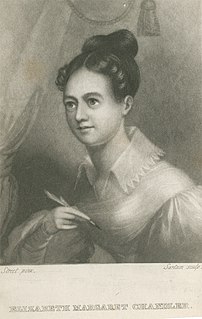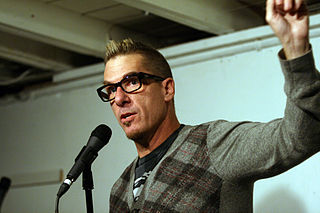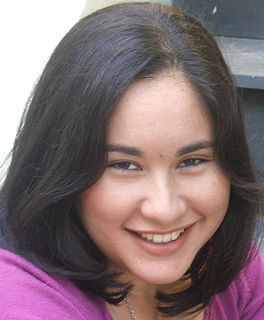A Quote by Lulu Wang
My grandmother was sick and I was told that we could not tell her, and that my cousin was gonna have this wedding as an excuse for us to all go and see her. And I think that I was just so frustrated by the situation.
Related Quotes
I heard a story about a woman who grew up in Texas. When she was having trouble in her life, she would visit her grandmother, who lived nearby and always had a kind word and some wisdom to pass on. One day she was complaining to her grandmother about some situation and her grandmother just turned to her, smiled sadly, and said, "Sometimes, darlin', you've just got to rise above yourself in this life." I've remembered that wise advice many times as I've faced trouble in my life.
I was bullied by my siblings and cousins, so make-believe was a way in which I could be in charge. When I was like 10 and my sister was about five, I convinced her that she was going to jail because she used a bad word. The doorbell happened to ring, and I told her it was the police. I made her pack her bags. She was crying, and then I said to her, "I forgive you, and I'm gonna tell the cop to go away." Then, of course, she loved me. It was terrible - she still remembers it. I had a sordid sense of humor.
I told you I try not to live in the past and nothing could change the fact that my mum was gone. But I’m a liar. The truth was, I’d had one dream ever since I was six: to see my mum again. To actually get to know her, talk to her, go shopping, do anything. Just be with her once so I could have a better memory to hold on to.
She didn’t understand why it was happening,” he said. “I had to tell her she would die. Her social worker said I had to tell her. I had to tell her she would die, so I told her she was going to heaven. She asked if I would be there, and I said that I would not, not yet. But eventually, she said, and I promised that yes, of course, very soon. And I told her that in the meantime we had great family up there that would take care of her. And she asked me when I would be there, and I told her soon. Twenty-two years ago.
I felt angry, frustrated. I felt I didn't belong, not in my church, not in my home, not in my skin. Amidst the chaos, i felt alone, in need of a friend instead of a sister, someone detached from my world. The "woman's role" theory disgusted me. I would soon be a woman, and I knew I could never perform as expected. I was tired of my mom's submission to her religion, to her husband's sick quest for an heir, to his abuse. I was sick of my dad, of reaching for him as he fell farther away from us and into the arms of Johnnie WB.
One thing I did have under my belt was, my mother lost her mother when she was 11. She mourned her mother her whole life and made my grandmother seem present even though I never met her. I couldn't imagine how my mom could go on but she did, she took care of us, she worked two jobs and had four children. She was such a good example of how to conduct oneself in a time of grief. When I lost my husband, I tried to model myself as much as I could on her.
I felt tired for the first time, and I thought of us lying down on some grassy patch of SeaWorld together, me on my back and she on her side with her arm draped against me, her head on my shoulder, facing me. Not doing anything--just lying there together beneath the sky, the night here so well lit that it drowns out the stars. And maybe I could feel her breathe against my neck, and maybe we could just stay there until morning and then the people would walk past us as they came into the park, and they would see us and think that we were tourists, too, and we could just disappear into them.
All of us--all who knew her--felt so wholesome after we cleaned ourselves on her. We were so beautiful when we stood astride her ugliness. Her simplicity decorated us, her guilt sanctified us, her pain made us glow with health, her awkwardness made us think we had a sense of humor. Her inarticulateness made us believe we were eloquent. Her poverty kept us generous. Even her waking dreams we used--to silence our own nightmares.






































